SPECIAL
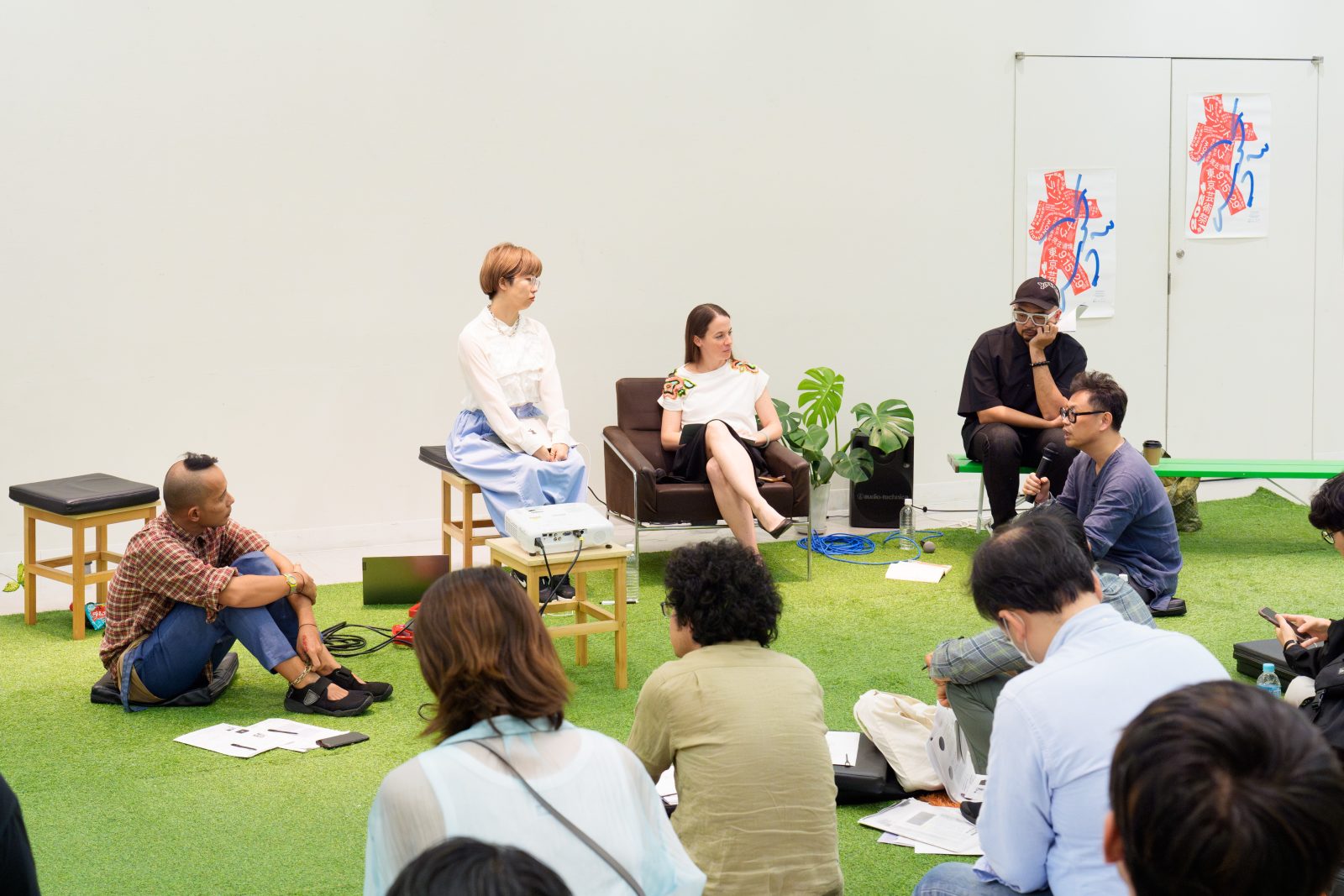
Report: On Tokyo Festival Farm 2024 Lab Symposium “What can we do to coexist in our differences?”
Written by Tadashi Uchino
Translated by Yume Morimoto, Monika Uchiyama
Photo by Kazuyuki Matsumoto
Written by Tadashi Uchino
Translated by Yume Morimoto, Monika Uchiyama
Photo by Kazuyuki Matsumoto
Tokyo Festival Farm’s website states the following:
Tokyo Festival Farm is a framework for education outreach and creative talent development within Tokyo Festival. It was launched in 2021 by combining Asian Performing Arts Farm (APAF), a platform promoting exchange and growth among young artists in Asia, with Festival/Tokyo (F/T)’s Research Program and Education and Outreach Program.
This year, Tokyo Festival Farm will be holding various programs under two categories: “Lab” for supporting the growth of emerging artists through research and development, and “School” for education outreach. “Lab” aims to cultivate young professionals who are able to freely navigate the many increasingly fluid borders of our world. The initiative encourages artists to explore the interdisciplinary and interregional “transfield” through collaboration with others. “School” provides young audiences, mainly university students, with opportunities to explore their thoughts and interact through stage works by attending lectures, participating in talk events, writing reports, and more.(https://tokyo-festival.jp/en/tf_farm/)
I will be reporting on the symposium, part of the Lab program, held between 18:45 and 21:15 on September 29th at Tokyo Metropolitan Theatre Gallery 2, which invited people to “contemplate the ‘solidarity’ essential to sustaining a career in the arts,” while “building on efforts within Tokyo Festival Farm Lab to cultivate young professionals and foster international collaboration.” (https://tokyo-festival.jp/2024/en/program/farm-lab-symposium)
There were four speakers: farid rakun from the Indonesian artist collective ruangrupa; River Lin, a Paris-based Taiwanese artist; Martine Dennewald, who previously worked in Germany and is now the co-director of the Festival TransAmériques in Montreal, Canada; and the playwright, director and novelist Toshiki Okada. Kanoko Tamura of the Art Translators Collective moderated the event.
The first speaker, farid rakun, explained the concept of “ecosystems,” which is the organizing principle of his artist collective, ruangrupa. Each member of the collective is a resource in their own right, with particular knowledge or skills, and by coming together, these resources can be gathered and shared, creating an “ecosystem” where members can mutually influence one another. This was the nature of ruangrupa’s practice when they started in 2000 , but as the collective became more active, they began to consider how to deal with the outside world. They continued to develop their “ecosystem” as a kind of operating system, leading to more concrete forms.
Since 2018, a group of three collectives, Serrum, Grafis Huru Hara, and ruangrupa, have established an informal education platform with an annual program called Gudskul. As the name suggests, the program’s main focus is education and artist development, and as a new endeavor, it is an imperfect process of trial and error. Since the coronavirus pandemic and the rise of remote communication, the program has considerably expanded both geographically and internationally.
In recent years, ruangrupa are focusing on developing an ecosystem within Indonesia. Although the collective generally opposes the Indonesian government, the ministries under the previous government were unusually accommodating, and ruangrupa were able to launch a system called The Living Room in 2023, in which 11 groups across 10 Indonesian provinces held residencies, allowing participants to move between them and learn from one another.
As for the symposium’s theme, rakun explained that the question of “coexistence” will be met with varying responses depending on who is asking whom, due to power gradients in each relationship—a city dweller asking someone in the countryside, or Japan asking Indonesia, a country they once colonized, or vice versa, will yield different answers. rakun concluded that it is important to pay attention to what or who is being excluded when asking for coexistence.
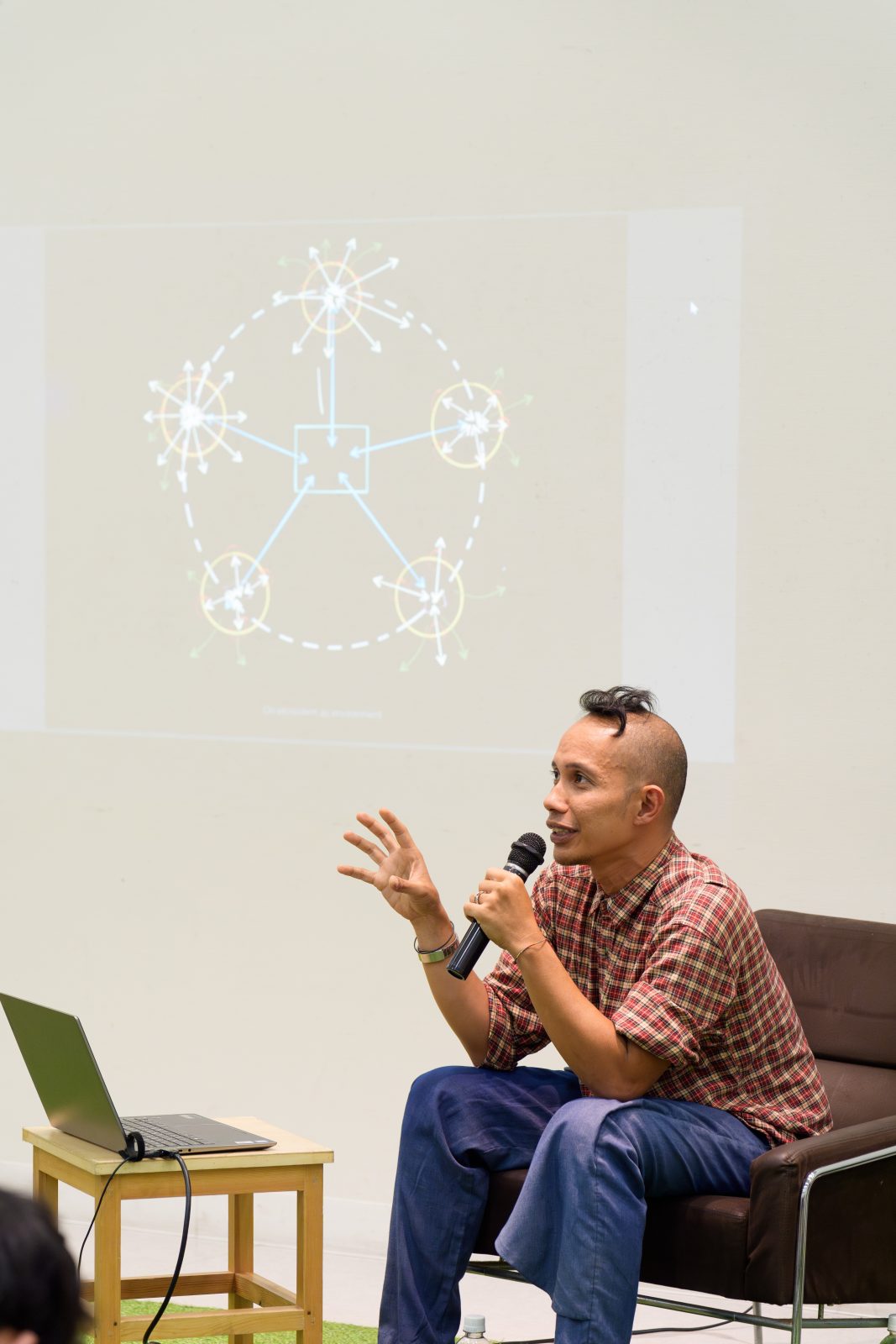
As if to pick up where farid rakun left off, the next speaker, Martine Dennewald, introduced five questions that she asks herself as an artistic-director with regards to whether it is possible to “coexist in our differences”:
(1) who makes curatorial / programming decisions?
(2) who bears most of the artistic or financial risk?
(3) who facilitates and frames public discussion?
(4) which themes and aesthetics resonate in this place, and with which audience?
(5) how do we find a balance of usefulness within the ecosystem?
Dennewald particularly emphasized that the ecosystem is not a metaphor, but an actual system—one that frames and evaluates our words, decisions, and actions. Therefore, much like an ecological system, the ecosystem is a concrete thing within the festival in which we participate. This is why each individual’s positionality (the position one occupies within the system) is so important.
With that in mind, she began her presentation about positionality by introducing the site where the Festival TransAmériques is held, where she serves as co-director. While showing photographs, she explained that the city known today as Montreal, Canada, is actually called Mooniyang or Tiohtià:ke in the languages of different indigenous peoples.
Although the festival was founded in 1985, it was essential to question what kind of festival she should organize as someone who is clearly a white woman, or a settler/colonizer. Dennewald thought that they must look to the indigenous people for guidance. When asked how decisions are made, they often explain that they think about the next six generations. In other words, the festival’s programming should imagine and anticipate six generations ahead.
Considering this, decolonization and the climate crisis are, of course, pressing concerns. However, solutions to these two issues do not always align seamlessly, and Dennewald argued that it is essential to consider the concept of decolonial ecology to integrate these challenges. For example, in response to environmental destruction, there is a growing movement in the contemporary art world to avoid air travel as a means of transportation. However, this can also be considered a Western-centric approach, as it can simply accelerate the concentration of power and wealth in the West. While acknowledging this sort of dilemma, Dennewald asked how international festivals, often shaped by histories of cultural exploitation, can evolve. How can we discuss the possibilities of decolonial programming and put these ideas into practice, while learning from ecologically sustainable models?
Lastly, Dennewald spoke about her experience co-producing work with Inuit artists Laakkuluk Williamson Bathory and Vinnie Karetak, highlighting the importance of recognizing the others’ terms and circumstances. She noted that the Inuit artists had led lives and had professional careers shaped by a vastly different way of thinking from ours, influencing their distinct approach to art, organization of time, and understanding of mobility. Yet, Dennewald states that it is precisely because of our unequal circumstances that we must respond and work together.
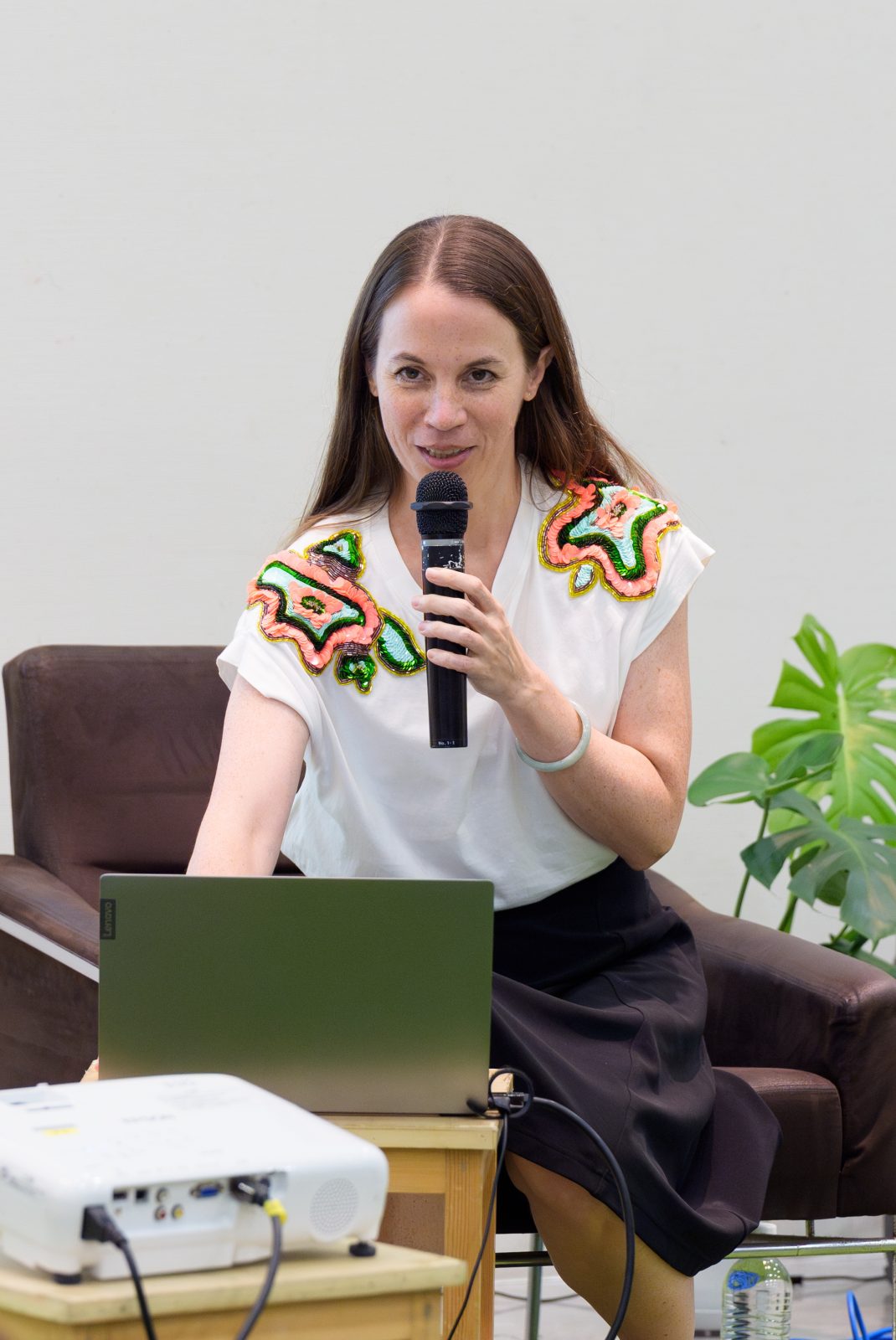
Next, River Lin began (his/)their presentation on queer curation. They explained that the term “queer” was not necessarily tied to sexual orientation and/or sexuality in this context, and introduced the verb form “queering” to better capture their approach. Here, the term was used to signify a non-binary way of thinking that rejects the dichotomizations that shape our constructions of knowledge. As such, the concept itself serves as a form of cultural activism, as it aims to break through existing boundaries.
Like Dennewald, the issue of land emerged as a departure point. Being from Taiwan, Lin also mentioned the importance of first acknowledging the presence of Indigenous P eoples in the islands of Taiwan. Moreover, while discussions of binaries may evoke images of East vs. West, decolonization also involves addressing delineations that exist within Asia, such as those between Japan and Taiwan, or within the Korean peninsula. However, Lin emphasized that this conceptualization itself is largely shaped by U.S. relations with the Asia-Pacific region, articulating the challenges of moving beyond Western-centric perspectives.
Examining things from this multifaceted perspective brings forth the concept of intersectionality—the idea that structures of power are complexly intertwined. A vital idea that was introduced in this context was the queer approach to “family” associated with the concept of Houses in drag culture. While power imbalances can exist within familial relations, the notion of family can also be a tool for fostering solidarity and collaboration.
When thinking about our differences, it is crucial to recognize our own positionalities. Lin stressed the importance of coming together with an awareness and understanding of where we are situated historically, systemically, and in terms of identity. Seeing this as a method for gathering, Lin founded the platform ADAM (Asia Discovers Asia Meeting for Contemporary Performance), aiming to create an ecosystem that fosters alternative spaces within institutional limitations and existing systems. Within ADAM, Lin created Artist Lab, a residency program for artists from various disciplines to learn from one another. Unlike conventional festivals that focus on presenting finished works, ADAM provides a space for gathering and exchanging ideas. Presenters and curators do not attend ADAM to buy programs or productions, but to learn from the artists themselves.
As another example of “queering,” Lin introduced Cruising, a new project driven by the need to explore new forms of festivals. Countries in the Asia Pacific region, including Taiwan, Indonesia, and Japan are all made up of islands, and Lin emphasized the importance of re-imagining Taiwan, not in urban-centric terms, but as part of an archipelago, within a broader geographical framework. To bring this concept to practice, they established this initiative at the Taipei Arts Festival where a different team of curators take the lead each time.
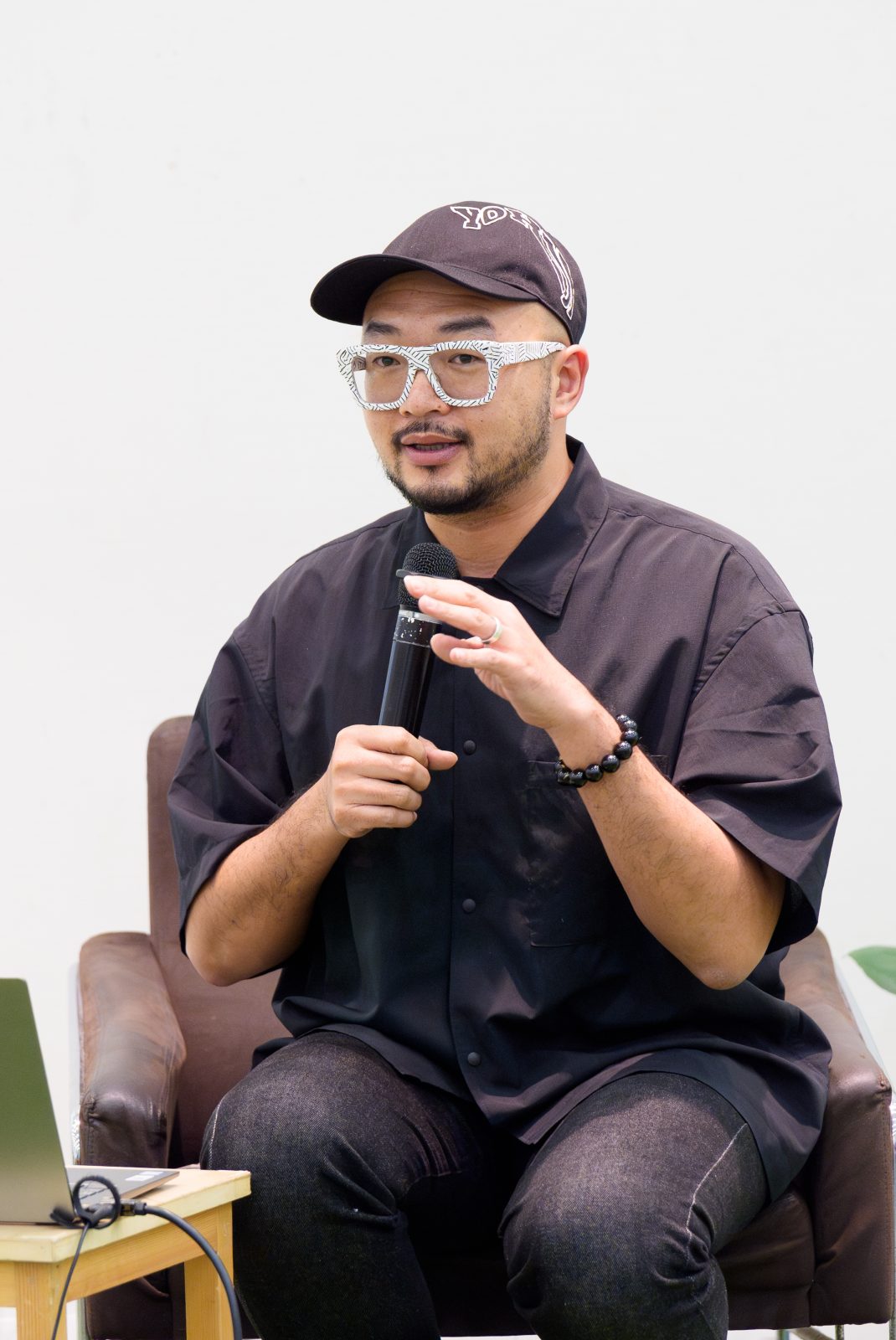
Toshiki Okada, the last presenter, spoke both as an artist and as the Artistic Director of the Tokyo Festival starting in 2025. He began by addressing the increasingly visible divisions we face, and articulating his intention to respond to the symposium’s driving question.
According to Okada, while he often has opportunities to present his works outside of his own Japanese linguistic and cultural contexts, these do not necessarily equate to “coexisting in differences.” He constantly questions whether the particular aesthetics of his work resonates with and attracts certain people, ultimately resulting in a lack of so-called “difference.”
As Artistic Director, Okada expressed his desire to address the issue of division through the performing arts, while also acknowledging certain limitations. He clarified that his focus is primarily on Tokyo Festival, not on the performing arts or festivals in general. He raised the difficulty of “queering” Tokyo Festival given that the event is largely confined to the Tokyo Metropolitan Theater, which houses three of the main venues. He pointed out that the theater format itself can be restrictive. While diverse works can be staged, they may not necessarily connect to a movement with a non-binary approach. He also mentioned that this issue may stem from a lack of resources, which he noted was a deep concern.

After the speakers finished, a Q&A session started, with moderator Tamura asking the panelists to share their thoughts on the inevitable gap that exists between their envisioned ideals and aspirations, and the realities they face in practice. The panelists’ responses were followed by questions from the audience, bringing the symposium to a close.
The symposium’s title, What can we do to coexist in our differences?, aptly reflected the discussions that unfolded from each speaker’s perspective. In an era where ideals like multiculturalism and coexistence are losing validity, or being dismissed as idyllic visions lacking substance, what made this symposium stand out was its focus. Rather than lamenting divisions or advocating for an unattainable ideal of absolute equality, the discussions centered on how we can come together and take action in a concrete way. Within these presentations, I found that River Lin’s repeated reference to “family” as an alternative ecosystem—a concept that strongly aligns with the recent philosophical thinking of Hiroki Azuma—particularly resonated with me.
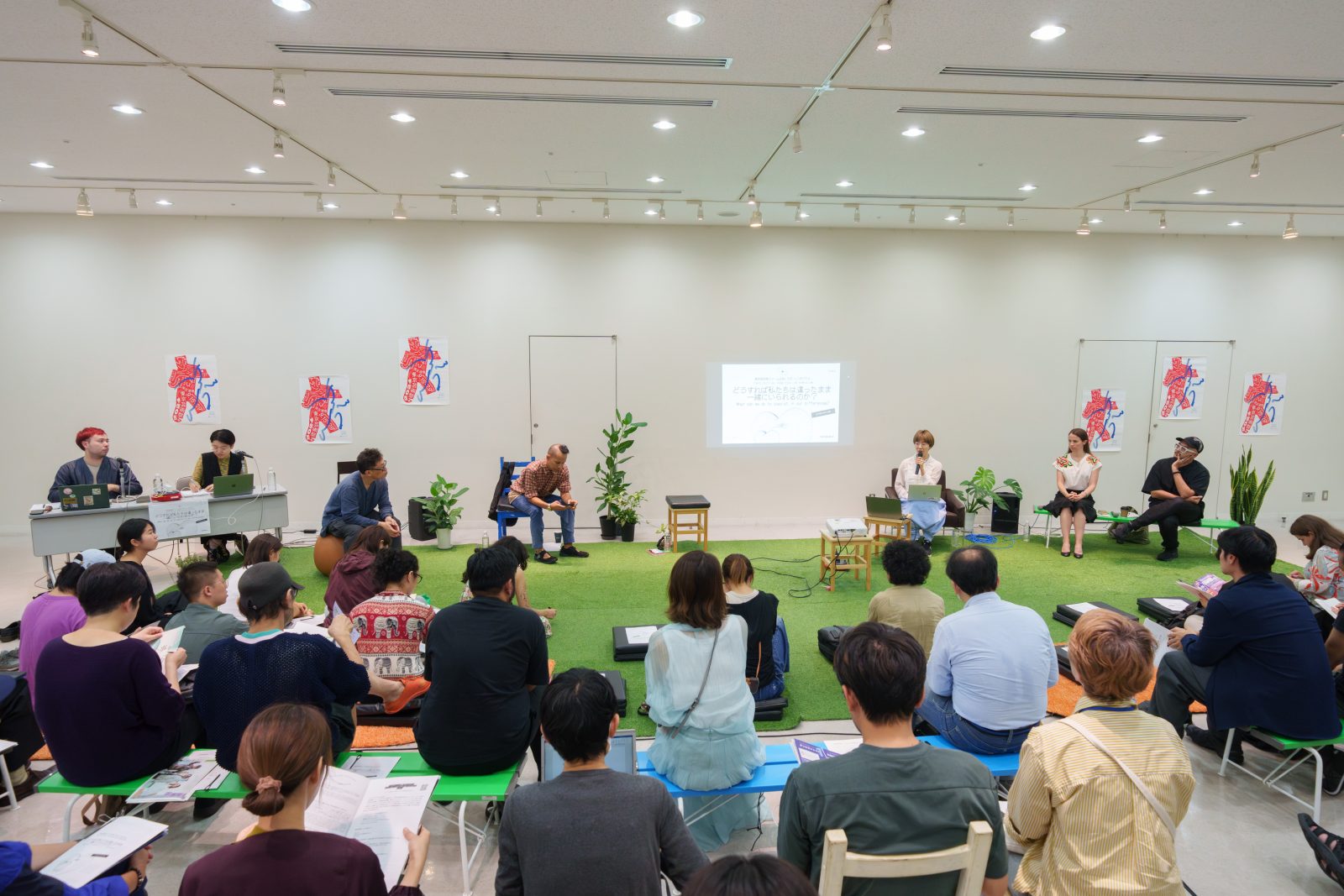
Tokyo Festival Farm 2024 Lab Symposium “What can we do to coexist in our differences?”
Date: Sunday, Sep. 29, 2024 6:45 p.m. – 9:15 p.m. (JST)
Venue: Tokyo Metropolitan Theatre Gallery 2
Language: Japanese and English (consecutive interpretation)
Ticket: Free (reservation required)
Speakers: Martine Dennewald, River Lin, Toshiki Okada, farid rakun (ruangrupa)
Moderator: Kanoko Tamura
Interpretation: Kyle Yamada, Haruka Ueda





